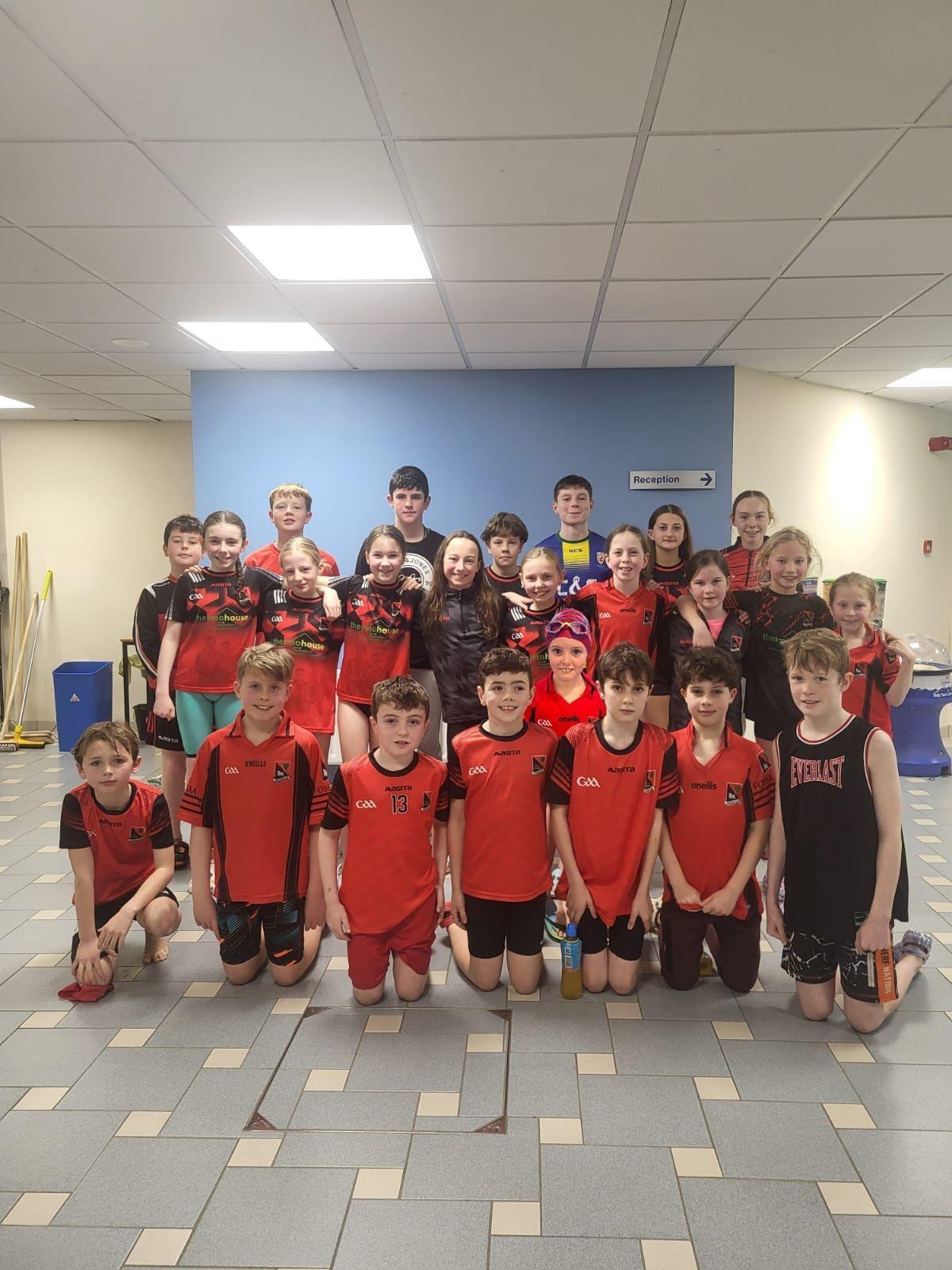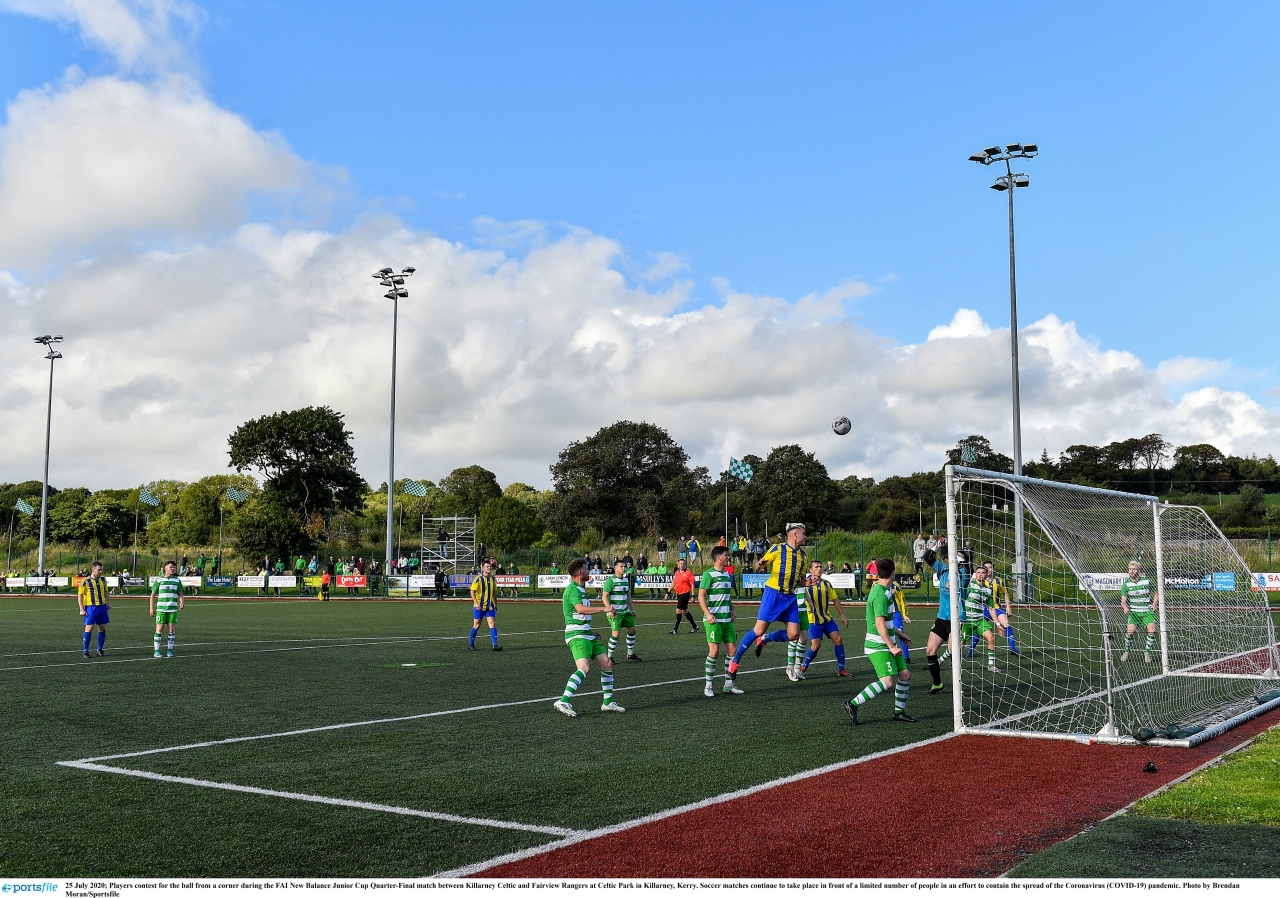Sport
Eamonn Fitzgerald: How to improve the modern game

Fixing the tackle, binning the bin and cutting the numbers… Former Kerry goalkeeper Eamonn Fitzgerald puts forward a number of measures that he feels would rejuvenate Gaelic football
In recent weeks most of the discussion on Kerry football has centred on the appointment of Jack O’Connor as manager of the Kerry senior football team. The Sam Maguire hasn’t returned to Kerry since locals Kieran O’Leary and Fionn Fitzgerald lifted the Holy Grail in 2014. The domination of the Dubs with the six-in–a row and the disappointments of the past three years, when Peter Keane was very unlucky not to manage Kerry to victory, has led to a deeper frustration among the Kerry supporters.
Some followers of football are losing interest in the game as it is played today. Some say they don’t bother going to games anymore, because the style of football has deteriorated into a mixture of basketball and athletics.
The romanticised recollections of the high-fielding of Mick O’Connell and the marking your own man, thou shalt not pass type of football is largely gone. Joe Keohane, Teddy O’Connor, Paddy Bawn, Paudie O’Shea and a host of others made sure that the opposition’s attackers never got a chance to have an unchallenged shot at the goalkeeper. Zonal defence, how are you?
THE TACKLE
Mick O’Dwyer always said that there is no really clearly defined tackle in Gaelic football, and I agree fully with him. He saw it from three sides: as a defender, attacker and manager. I talked to him many times about this.
There are three basic types of tackle in Gaelic football: (a) the side tackle, the most common one, (b) the front tackle, (c) the tackle from behind. The referee is the sole judge and has to decide if it is a free in or a free out. Types (b) and (c) don’t pose any real difficulties in decision making. Both are fouls. But a shoulder to shoulder is allowable. However, if a player gets a fair shoulder and falls to the ground, invariably the referee favours the fallen one.
One Kerry football defender of the past perfected the ideal ruse. When he was slowing up in his latter days with Kerry and he faced a jinking speedster, he ushered him out towards the sideline, gave his customary right belt of a shoulder, and then assisted the forward with a helping hand to ensure he stayed on his feet. Free out. Over-playing the ball.
The rule regarding tackling states that you must use one hand and one hand only, but the problem is: what does a defender actually do with that one hand, as opposed to what he is allowed do.
Tackling in Gaelic Football is confined to tackling the ball. It is illegal to trip, punch, hold, drag, pull or rugby tackle another player.
For defenders all you can do safely without conceding a free in is to shadow the opponent with both arms outstretched, doing a sprightly dance like David Rea’s Riverdance, hoping you can entice/force the forward out to the sideline where he is least likely to score. Two hands draw the foul. Of course, some defenders play to the optics using the one hand and raising up the other hand so that the ref thinks he is not fouling. What is the defender doing with that hand? Playing the ball trying to punch it out from the attacker? If that hand delivers a punch to the solar plexus, so be it, as the referee is usually unsighted. Or, as happens too often in club games, the referee is not up with the game and cannot see what is really happening. As he makes his way to the scene, I believe that he is unduly influenced by the roar of the crowd. “Free in, ref!”. Thank you very much says Seánie O’Shea and Dean Rock.
Rugby is very clear-cut when it come to the defined tackle and to some extent in soccer, where the sliding tackle is not acceptable.
While there is some credence in the perception of these disillusioned football followers, who long for the Kerry football style of the good old days, I don’t see it through the same rose-tinted glasses. Too often in the past the hard man was lauded for his physical prowess and not for his skills. I can see the merit of the modern possession game, but not endless lateral hand-passing, the fulcrum for launching a successful game strategy, which was one good reason why Dublin won six-in-a-row. They were also a great team.
You’re a loser all the way with Dean Rock and Seánie O’Shea delivering almost 100%. Take a recent game as an example. Seánie kicked 15 points versus Dr Crokes and 14 of those were frees, from any distance from 45 metres inwards. The winning score was 17 points. So a reliable free-taker is essential on any team. He repeated the performance on Sunday last by scoring 11 points to squeeze past Dingle. The scoring in football games nowadays is very high and even more so in hurling.
PITY THE REFEREE
I have great sympathy for the referee in football and have never commented on the performance of the referees in these pages, unless I attended the game. Second-hand accounts are biased, unreliable and unacceptable. When I attend games in person, I comment on the performance of the referee, but never personalise these comments. It is a judgement on performance not on the referee as a person.
Quite simply, I respect referees. I believe they have an impossible job. It’s tough enough at intercounty level but pity the ref in some local game where he does not have neutral umpires or linesmen. The ref should apply the rules, but also apply common sense, knowing the difference between a deliberate intentional foul and body contact where the player is playing the ball, not the man. No free or card for such, even if the player falls to the ground.
The modern game has evolved and there is much to recommend it, but I believe that it can be made much more enjoyable for players and spectators by making necessary changes
IMPROVEMENTS
Some of the he rules are not clear-cut, particularly the tackle.
Rid the game of the mark. The idea was that it would reward high-fielding, a wonderful but fast–fading feature of the game. It has not done that, particularly around the middle of the park. Midfield is often bypassed today and worst of all a mark is allowed for a player near goal, who manages to catch a low ball stumbling to the ground and raises his hand within a few seconds to signal his achievement. Did he, or did he not, raise his hand? Invariably the referee awards the mark and a simple tap over for a certain point, which may be the winning score.
Learn from the women’s game. The LGFA has got it right with the clock (in major venues) taking the timing of games away from the referees. The same happens in basketball. The clock stops when there is a hold up in play. Then there are no grounds for dispute. I have seen too many games where the referee played too much overtime, or too little, and the winning scores came during the extended time. Recently I witnessed 13 minutes added on by a referee. There is a lot of stoppage time in 13 minutes.
Spectators have watches and stopwatches/timers on their phones, so then the arguments commence. That time added on is at the discretion of the referee. He has too much to do already and more advisory discretion should be given to umpires and linesmen. In the absence of a clock, let the other officials bear that responsibility.
Get rid of the water-breaks too. Too often they influence the flow of the play. Pardon the pun, but too often they also change the run of play.
13-A-SIDE
I would love to see the teams reduced to 13 players. Take out the full back and the full forward, create more space and set the scene for more open football. I have seen it used very successfully at colleges level and it is a joy to watch. Also, it would help rural clubs in particular, who are hard pressed to have 15 players available due to depopulation and other factors. It would help clubs to field their own team instead of being forced to join up with their neighbouring parish, probably their greatest rivals for many years. Amalgamations are undesirable, but often necessary. I think of South Kerry clubs in particular.
There is an argument to get rid of all referees’ cards, red, yellow and black. For a start dump the black card. As it is, some players feign injuries, waste time and run down the clock. The 10-minute penalty and 14 players effectively means the sin-binned player returns after seven, six or dare I say five minutes. The timekeeper is the ref. He is not God almighty and he has enough to do.
The modern game of football has plenty going for it, but there are responsibilities on the GAA authorities, the referees, the managers and the players to improve the enjoyment of the game. Ditto for the spectators, the hurlers on the ditch, or in this case the footballers on the terraces. Too many are not conversant with the new rules. It is hard to blame them; there has been too much tricking around with the rules governing football that it can be hard to know the updated position.
That situation with local club rivalry and natural bias leads to misinterpretation and misrepresentation of the facts and rules that leads to difference of opinions, to put it very mildly.
Pity the poor ref having to make instant decisions, de facto on his own. Video analysis is not confined just to The Sunday Game. Many club games are also filmed. The ref can’t win. Who would want to be a referee? Certainly not for the money – a very modest €40 for a local senior game.
Is it a just reward for running the gauntlet of some players, or a few officials who spend half their time encroaching onto the pitch, and the tirade of abuse from spectators, usually personal, misguided and unwarranted?
Who’s reffing the game on Sunday next?
News
Fossa Swimmers make a splash at County Finals
The Fossa Swim team pictured at the Tralee Sports Complex following their successful outing at the County Finals of the Community Games on Sunday, February 15. The 25-strong squad delivered […]
News
On the Ball Part 2 of the Mikey Daly Interview
Éamonn Fitzgerald EF: Killarney Celtic are invited to participate in an Irish competition. That has big financial implications for travel, meals, etc. MD: It is great to be invited, showing […]



















